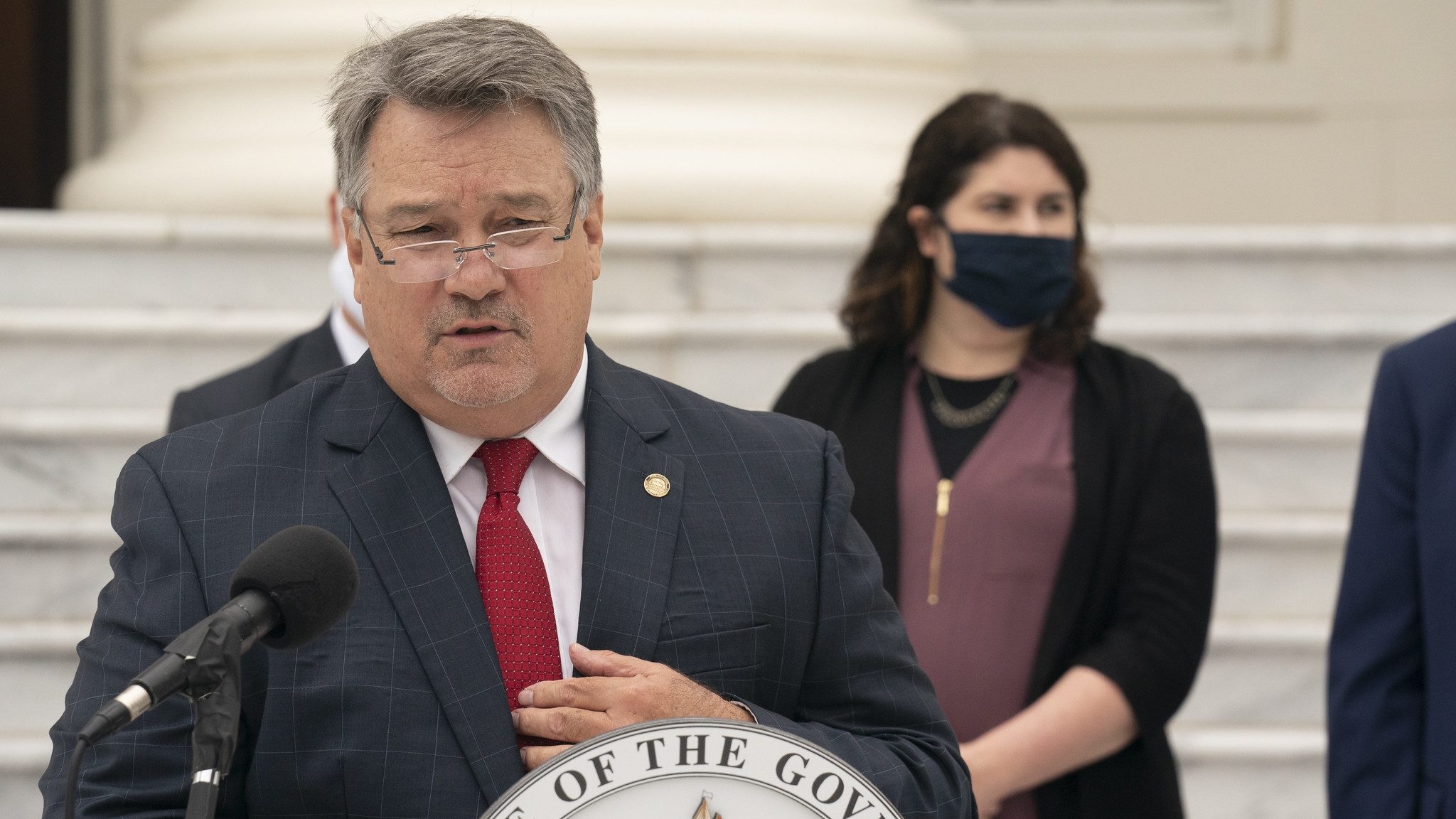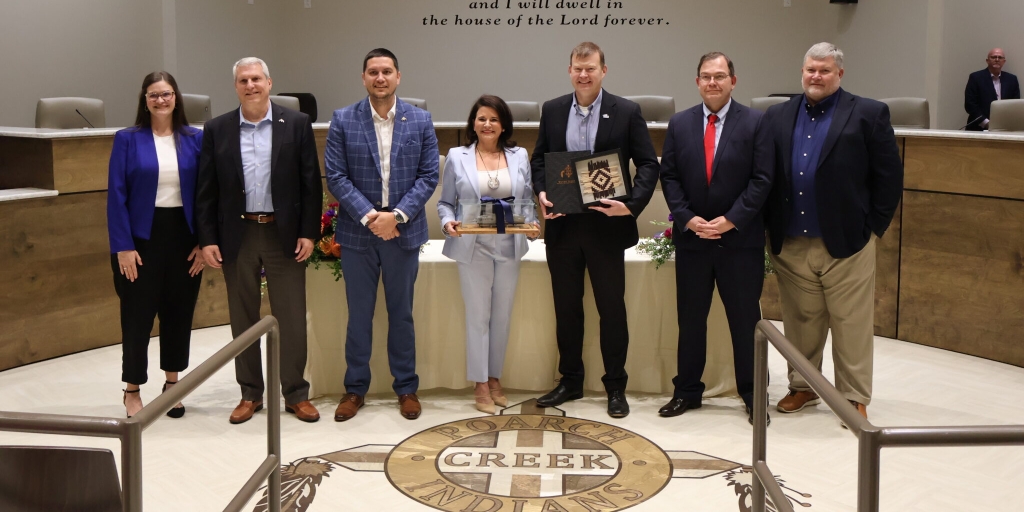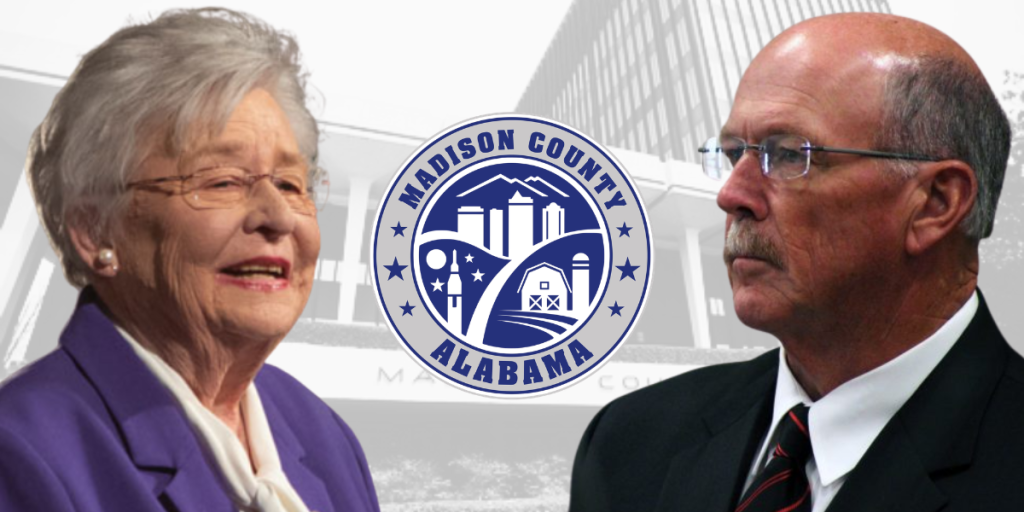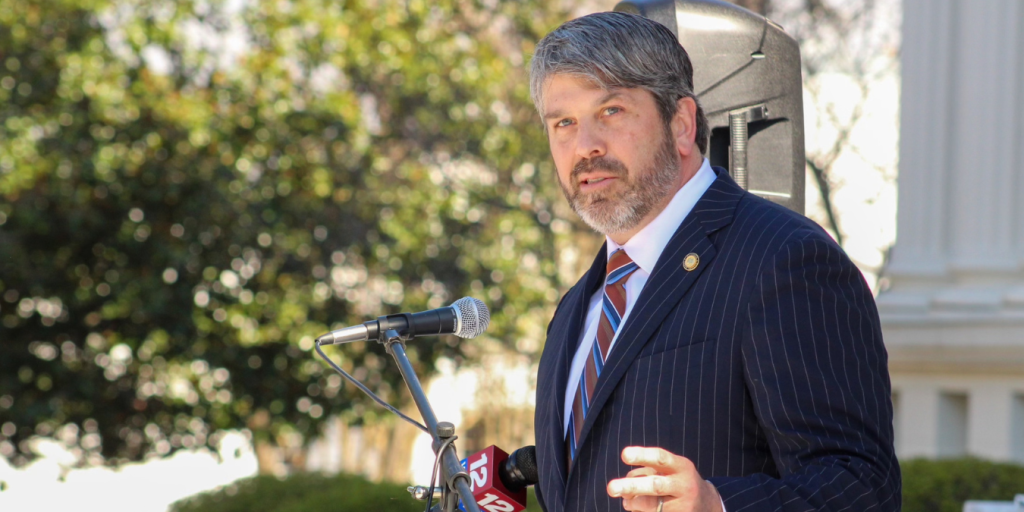The Alabama Legislature has used 17 of its 30 legislative days in the 2024 regular session. Speaker of the House Nathaniel Ledbetter (R-Rainsville) reflected on the accomplishments of this session with Capital Journal’s Todd Stacy on Friday.
“I think this session is almost like having two sessions in one,” Speaker Ledbetter said. “We have got to the break now coming up on spring break and then after it. When you look at what we have already done, we have passed enough legislation for a full session.”
“We first started before the session, the Pro Tem and I met and got together to try to kind of lay out what the first part of the session would look like,” Ledbetter explained. “We knew there were a lot of heavy lifts and there were, but we pretty much were able to accomplish all of them.”
The Legislature was given an issue it did not expect when the Alabama Supreme Court issued a ruling that many fertility clinics felt would make it difficult for them to continue to perform in vitro fertilization treatments (IVF) in the state.
“Some of the things we didn’t see coming. IVF is one of those,” Ledbetter said. “It seems like there is always something springs up that you don’t expect; but I think the Senate and House handed it very well. Within five days we had it on the governor’s desk to be signed so families can continue in the process and hope to have families.
RELATED: Reed, Ledbetter detail Alabama lawmakers’ approach to IVF: ‘Be very focused, get wise counsel’
State lawmakers passed comprehensive school choice legislation, classroom transparency expansion for parents, a ban on DEI (Diversity, Equity, and Inclusion), a ban on ballot harvesting, and a wide range of other items in just six weeks. While in some years, after leaders return from break, they simply focus on passing budgets and rounding out major agenda items. Ledbetter said that that is not the case.
“There is going to be more work,” Ledbetter said. “I think that is why the people sent us down here, is to try do things that are positive for the state and move bills that makes our state more successful.”
One of the biggest issues that the Legislature is planning to tackle is improving the state’s workforce participation rate.
“Labor participation has been a problem in Alabama,” Ledbetter said. “Even though we have unemployment of two-point eight percent the reality of it is 43% of working age Alabamians are sitting on the sidelines.”
“We put a committee together early on to study it,” Ledbetter said. “[State Rep.] Reed Ingram chaired that committee. I think they did a great job. They came up with a lot of things to look at. Childcare being the number one focus.”
The Legislature will consider childcare tax credits to make it easier for mothers to go back to work and participate in the economy.
“That would make a difference, I think, in our workforce participation,” Ledbetter said. “Over 85,000 families today need some type of childcare in the state. So, if we can look at fixing that and maybe make it better, I think we can improve our numbers. That is our goal.”
To that same end, State Rep. Cynthia Almond (R-Tuscaloosa) is sponsoring legislation to create an incentive for industry to build housing as the availability and affordability of housing is making it difficult for companies to recruit workers if they need to move to that community.
“We had a tremendous amount of success in growth because of some of the packages and some of the companies that moved into our state and took advantage of them,” Ledbetter explained.
“In doing that the growth we are seeing in some of our counties the affordability for housing has gotten tougher. If you look at Madison County, if you look at Mobile and Baldwin County where the growth has been so strong housing has gotten to be hard to afford. The thought of this is to offer a public private partnership. We offer an incentive for them to be able to come in and build housing.”
RELATED: ‘Working for Alabama’ to power up state workforce, economy with legislative package
Another initiative to improve how the state deals with workforce development issues is to create a cabinet-level Secretary of Workforce and putting all the training and workforce development programs under that one person.
“Yeah, I think that was the goal from the task force that the lieutenant governor had put together was trying to figure out what everybody is doing,” Ledbetter said.
“When you have got certain agencies that is doing things that other agencies were not aware of whether it is job training or trying to create incentives for that particular industry. The idea was to put some in charge of all of that to know what is going on so they can focus together instead of pulling in different directions.”
Some would think that creating a new cabinet level agency would be growing government but Ledbetter disagrees with that.
“It cuts down duplication and actually even though you are adding that position I think it really shrinks government because you don’t have to have that duplication,” Ledbetter said. “I really think that is a smart idea and I think it will be very successful for the state.”
One of the most visible and contentious issues that the Legislature has started tackling this session is legal gaming in Alabama.
“We talk about it (the Senate bill) being scaled back, but it also creates facilities legally in those counties where they (the House bill) talked about putting casinos in,” Ledbetter said. “It is not as scaled back probably as some would think; because those facilities will be open whether they are casinos or existing facilities.”
During the last week, the House could have voted to concur or to nonconcur with the Senate bill. It did not bring the issue up and Ledbetter did not say what the House will do.
“The two chairman, being Chairman Whitt and Chairman Blackshear, have worked some on it already and are looking at what the possibilities are,” Ledbetter said. “We will continue to do that and study it, At some point we will come back to it.”
To connect with the author of this story, or to comment, email [email protected]













